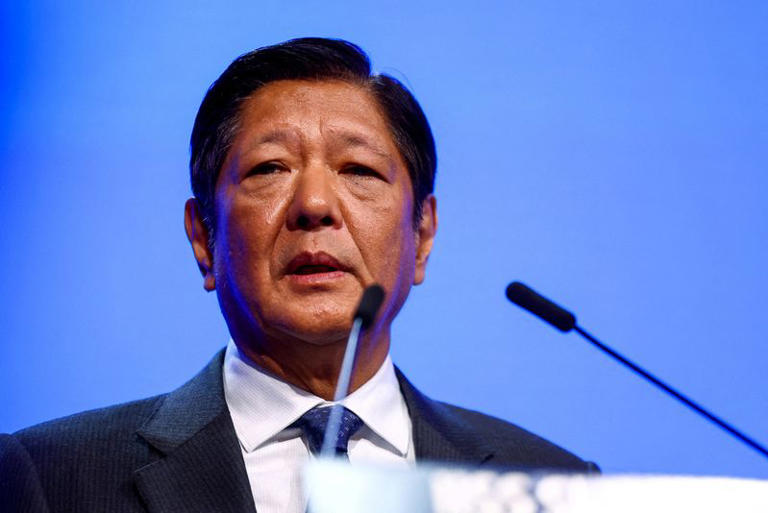Philippine President Ferdinand Marcos Jr. made a strong statement on Sunday emphasizing that his country is committed to resolving disputes peacefully and is not interested in instigating conflicts, even as tensions escalate in the South China Sea with China. Addressing the troops of the Western Command unit responsible for overseeing the South China Sea, Marcos underscored the Philippines’ dedication to maintaining peace and stability in the region.
Marcos’ remarks come in the wake of a recent clash between Philippine navy personnel and the Chinese coast guard in the disputed waters. This latest confrontation resulted in serious injury to a Filipino sailor and damage to Philippine vessels. The incident is part of a broader, ongoing dispute over the South China Sea, a vital maritime area through which over $3 trillion worth of annual shipborne commerce passes. China claims nearly the entire South China Sea, a claim that overlaps with territorial claims from the Philippines, Vietnam, Indonesia, Malaysia, and Brunei.
In his speech, Marcos stressed the importance of peaceful resolution, stating, “In defending the nation, we stay true to our Filipino nature that we would like to settle all these issues peacefully.” He assured that in performing their duties, Philippine forces would not resort to the use of force or intimidation, nor would they deliberately inflict injury or harm. This commitment to non-violence and diplomacy is a cornerstone of the Philippines’ approach to international conflicts, especially in such a contentious region as the South China Sea.
Marcos’ address did not specifically mention China by name, reflecting a careful diplomatic stance. This omission suggests an effort to balance asserting the Philippines’ sovereign rights with a desire to avoid further escalating tensions. The speech aligns with the broader Philippine strategy of maintaining a firm but peaceful approach in the face of aggressive actions from other countries.
The international reaction to the recent clash has been one of condemnation towards China. The United States, Britain, and Canada have all criticized Beijing’s actions during the routine Philippine resupply mission, calling out the aggressive maneuvers that led to the confrontation. Despite these condemnations, China’s foreign ministry defended its actions, labeling them as lawful, professional, and beyond reproach. This defense indicates Beijing’s unwillingness to acknowledge any wrongdoing and underscores the ongoing diplomatic standoff.
The legal backdrop to these disputes includes a landmark 2016 ruling by the Permanent Court of Arbitration in The Hague, which declared that China’s expansive claims in the South China Sea have no legal basis. Despite this ruling, China has rejected the decision and continued to assert its claims, leading to ongoing tensions with the Philippines and other neighboring countries.
Marcos’ commitment to a peaceful resolution is a reaffirmation of the Philippines’ longstanding approach to international disputes. “In the performance of our duties, we will not resort to the use of force or intimidation, or deliberately inflict injury or harm to anyone,” he reiterated, highlighting the nation’s adherence to peaceful and diplomatic means. This stance is reflective of the broader cultural and historical values of the Philippines, which favor negotiation and peaceful coexistence over conflict and aggression.
The delicate diplomatic balancing act that Marcos is attempting is evident in his carefully worded statements and actions. By not naming China directly, he leaves room for diplomatic engagement while clearly articulating his country’s position and the principle of non-aggression. This approach is intended to avoid further provocation while still addressing the serious issues at hand.
As tensions in the South China Sea continue to simmer, Marcos’ emphasis on peace and diplomacy will be a critical aspect of the Philippines’ strategy. The international community, particularly stakeholders in the region, will closely monitor how these dynamics evolve. Marcos’ statements and the Philippines’ actions moving forward will play a significant role in shaping the future of this crucial and contested maritime region.
